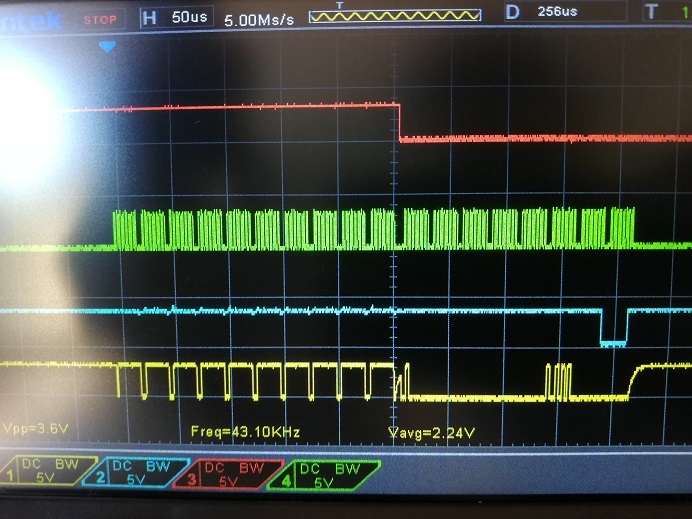I am communicating with an SD card via the SPI protocol through the SSI interface.
After I send my command frame to the SD card via the MOSI line, I need to provide an additional 16 clock cycles so that the SD card can send a response byte back via the MISO line.
So far, I have been making those 16 additional clock cycles by transmitting two bytes of 0xFF.
The problem is, since the TM4C123GH6PM uses a common FIFO for transmitting and receiving, the data I intend to receive is always overwritten by the transmitted 0xFF. Every time I attempt to store the FIFO content into another buffer, I store the 0xFF that I am transmitting.
So, my question is: How can I provide those additional 16 clock cycles without the TM4C123GH6PM putting data into the FIFO?
See attached image. CS, CLK, MISO, MOSI. The cyan MISO line contains the data (0x01) that I want to store, but it is always overwritten by the yellow MOSI line's data (0xFF).



